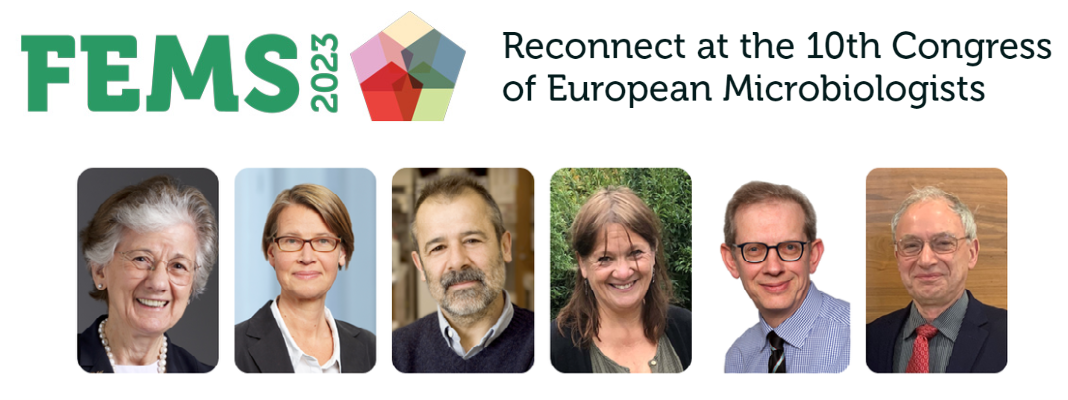At FEMS2023 there will be a fascinating range of plenary speakers, each bringing their world class expertise to our Congress. You can also dig down into 10 main topics, and hear from hundreds of speakers and presenters. We can’t wait to meet you all in Hamburg (9-13 July), to learn from these top-level scientists.
Plenary Speakers:

Rita Colwell is the Distinguished University Professor at the University of Maryland at College Park and President of CosmosID, Inc. Her interests are focused on global infectious diseases, water, and health. She has authored or co-authored 20 books and more than 800 scientific publications. Dr Colwell served as 11th Director of the National Science Foundation and Co-chair of the Committee on Science, National Science and Technology Council.
Julia Vorholt is the chair of the Vorholt Lab at ETH Zürich, which focuses on learning how bacterial physiology is shaped by the environment with a focus on the plant microbiota. Recently, she developed live sequencing, together with Bart Deplancke (EPFL): a new technique that keeps cells alive during extraction to track the activity of thousands of genes across time.
Jorge E. Galan (PhD, DVM) is currently the Lucille P. Markey Professor of Microbial Pathogenesis and Professor of Cell Biology at Yale University. Additionally, he chairs the Galan Laboratory at Yale University School of Medicine, focusing on the ‘molecular mechanisms of pathogenesis of Salmonella and Campylobacter’.
Carmen Buchrieser is currently Professor at the Institut Pasteur, Paris, France. In 2006 she was appointed Associate Professor at the Institut Pasteur where she is heading a research group studying bacterial pathogenesis by using Legionella as a model. Her major research interest is to understand how bacteria cause disease: what are the genetic factors conferring bacterial virulence, how do they evolve, what are the mechanisms by which they allow subverting host functions and more generally how do human pathogens emerge. She is an Editor-in-Chief of microLife.
Paul Lehner is currently Professor of Immunology and Medicine at the University of Cambridge as well as a practising Infectious Diseases Physician at Addenbrooke’s Hospital in Cambridge. His main research interest focuses on the use of genome wide CRISPR genetic approaches to identify novel genes and intracellular pathways involved in virus: host interactions with a particular emphasis on epigenetic mechanisms of viral silencing. His work has significant implications for immunisation strategies against viruses.
Kenneth Timmis, Professor at the Technical University of Braunschweig in Germany, has been awarded the 2023 FEMS-Lwoff Award for Achievements in Microbiology. Professor Timis was selected for the award for his contributions to the field of environmental microbiology and advocacy of microbiology literacy. Timmis is a Fellow of the European Academy of Microbiology. He will open the FEMS2023 Congress by giving the FEMS-Lwoff plenary lecture on 9th July, in Hamburg.
10 Main Topics:
- Environmental Microbiology & Ecology
- Biotechnology & Synthetic Microbiology
- Food Microbiology
- Infection Biology & Pathogens
- Infectious Diseases
- Taxonomy & Systematics
- Genetics & Genomics
- Virology
- Microbiology Education & Profession
- Molecular Microbiology & Biochemistry
